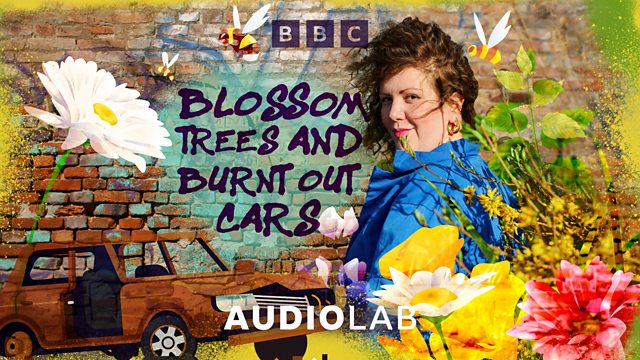Welcome to Blossom Trees and Burnt Out Cars
Talia Randall meets the radical ramblers and activist gardeners who are opening up nature to everyone.
Talia Randall talks to the nature-loving pioneers who are smashing down the barriersâvisible and invisibleâthat keep so many of us locked out of green space. From a park in Glasgow, to a beach in Cornwall and a Traveller site by an A road in London.
Nature can help us work out who we are. Take Ione, a British-Mexican land worker who finally understood what it meant to have a mixed identity when she saw a Mexican plant growing in English soil. As a kid, Talia broke into the nature reserve on her council estate. Some call this trespassing, others call it playing out. Which children are allowed to play in nature freely and which kids are seen as a threat? Now that Talia isnât that kid anymore, she reflects on her own relationship to nature, has it changed as her class has?
Welcome to Blossom Trees and Burnt Out Cars
âYou live in a housing estate. You don't like nature. You look about concrete and a bit of you know, mildew on windows. That's the only nature you should have. No, we should just say noâ
Ìę
(voice in the distance). Stevie, come on, good girl
Ìę
Voice up close: Hi, my name is Talia Randall. Iâm a writer, performer and I grew up on a London council estate that backed onto a busy train track. Now I live in the green suburbs of East London in a house I share with my parents, my boyfriend and my rescue dog Stevie.
Ìę
Iâve often thought about how challenging it is for people who grew up in similar neighbourhoods to me to access nature. Lockdown brought this into sharp focus, I took deep solace in these woods behind my house. On those anxious daily walks I remember this blossoming feeling of happiness in greenspace which hasnât always been there for me.
Ìę
As Iâve moved from somewhere in the working class bracket to something much closer to middle class I wonder if part of my new found comfort in being a nature person is directly linked to my changing status.
Ìę
Now, look you might be thinking â well why is this important, we got more to worry about than a walk in the woods? But I think that talking about our relationship nature reveals so much about our identities, about our position in the world, how weâre viewed by others and how we see ourselves.
Ìę
We know that being in nature is good for our health and if there are people who are locked out of it then they simple donât have fair access to this wellbeing.
Ìę
In âBlossom Trees and Burnt Out-Carsâ, youâll meet nature pioneers from underrepresented communities and youâll hear about the barriers that keep people locked out of nature
Ìę
âWhen there's lots of obstacles for peopleâ.Ìę
âThere's a really toxic idea that brown and black people don't belong in the countrysideâ.Ìę
âPeople don't understand or realise how connected travelling people are to natureâ.Ìę
Ìę
As well as the obstacles, this podcast focuses on the solution that can unlock these gates.Ìę
Ìę
âIt's satisfying once you break the barrier down. It's emotional, it's lonely, it's difficult, but once you do it, it's wickedâ.Ìę
âYou know, I think it's really important for young people particularly, to see themselves reflected in the landscape, and to know that we have a history here and we have every right to belong here and actually you can be a rural person and have different sorts of identities, and that's absolutely fineâ.Ìę
âI want to celebrate black joy in nature and just existing in this space.â
âBoom, let's do itâ.Ìę
Ìę
Join me, Talia Randall, as I dig beneath the surface and chat with the people who are opening up nature to everyone.Ìę
Podcast
-
![]()
Blossom Trees and Burnt Out Cars
The radical ramblers and activist gardeners who are opening up nature to everyone


